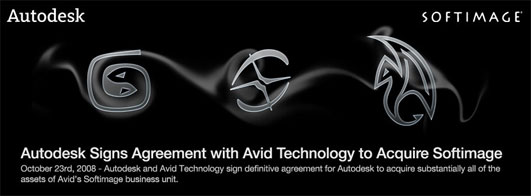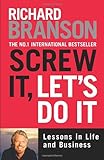When I first decided to make a career change into the film computer animation/VFX industry I wondered how to get in.
There are two main types of people who go into VFX/computer graphics. The artistic types; people who love drawing and doodling to people who have done fine art. They can also just be people who have a good eye for scene composition (be it just photograhy or art in general), these people typically graduate to the 3D world; 3D modelling, texture artists, animators etc. The other type is the more scientific person (this is where I fall into). Somoene who does programming or can easily pickup complex applications and create scripts to solve technical problems. These people in my experience generally go into the 2D world, blue/green screen compositing or TD (Technical Director) work. TDs create scripts or create small programs to for example speed up the rendering of a scene to creating new forumlas to make water look more realistic when it flows into a container.
Working within a Post company as a runner
First was the runner route. Most post production companies like The Mill, MPC, ILM have runners which run messages around the company do odd jobs etc. Now if your young, just come out of school and/or have little money this maybe an option. It allows you to learn the ropes of the company, how shots come into the company go through the companies pipeline and out the other end. Its a way to get a junior position in VFX to start your career. Also you get to know the movers and shakers in the industry which is of particular importance in the film/VFX industry because MANY of the jobs are based on word of month recommendations. But this can take time, there could be other runners ahead of you, or job openings may not appear.
For me being a runner wasn’t for me, i’ve been out in industry too long to go back to the beginning and start again.. so what were the alternatives?
University
Going to university definatly could be an option, you get a grounding in graphics theory etc and you get a degree at the end of the day. Which can be very useful later in life or if you want to move jobs. But for such an artistic industry I felt it just being too academic. Also it can be hit and miss, Rebecca Clay went to university to study Animation and graphics and ended up suing Lincoln University, now from what I’ve been told they have changed their staff and its better but its sometimes hard to know if you are being taught well without knowing what you could be learning and to find this out at the end of 3 years when you can’t get a job is a lot of wasted ime. Is there a way to short cut the process to do it quicker so that you don’t have the potential of wasting all the time? I’ve also already been to university so to wait another 3 years before going back into industry would be annoying to say the least. Finally i’d have to pay for university this time around.
I did computing at University which really set me up to work in the 2D world knowing the theory of programming. I also went to a really good university which really thaught me not just how to program a programming language (or many languages) but best pratice in writing programs (so thanks Kent University!).
Uni was not for me… again anyway, but if could be for some to have the “security” of a degree. So what are the other options? Well there was three (self paced, online & classroom).
Self Paced:
Firstly 100% self paced from books which can be hard unless your very diciplined. Also from what I learned later on, a book can teach you how to use an application. Many books don’t teach you how to use the application to solve common problems with shots or the best way to do something in different circumstances. But at the time didn’t have this tit bit of information. I duly hunted out what software was used in the industry so I could get the training books to start learning. I also looked at getting some gnomon DVDs. So I purchased the Maya manuals and started learning from home (you also don’t have to buy the Maya software because you can use the free personal learning edition).
I learned quite quickly that due to other things going on in my life and with work I just didn’t have the dicipline to learn on my own. The only way to get help working on your own was to post on website forums and hope someone replied with the correct answer which sometimes in some of the more complex modelling was hard to even describe what was wrong.
In house classroom training vs Online:
So I was going to have to find another way. It was either going to be online learning or classroom based learning at a specialist VFX training company.
There are MANY resources for online learning to name but a few:
- Escape Studios – Great Maya Training
- fxPHD – Good 2D training (Compositing with Shake, Flame, Roto etc)
- Gnomon Online – Really it looks like a copy of their Gnomon DVDs but just put online, but I haven’t used them
- Animation Mentor – Supposed to be very good for animation, including tutor one on ones from what other people who I know have taken a course.
- Lynda – More how to use an application rather than the important things you need to know (tricks of the trade etc)
There are also the classroom based courses, which can be anything from 3 weeks to a year:
- Escape Studios
- Gnomon
- Various short courses at universities.
I will go into these in a bit more depth later on but basically I sum up the classroom vs online argument as the following:
| Classroom Based | Online Training |
Advantages:
|
Advantages:
|
Disadvantages:
|
Disadvantages:
|
Ironically my job before going into the VFX world was eLearning for large corporations. So I know a little bit about learning theory. But the basics should be obvious. People learn in different ways, some learn better visually, others verbally or through having things written down in manuals. Knowing how you learn is sometimes hard to find out so a combination of classroom and online (called couse blending) would be perfect to cater for every way people learn. But I’m yet to find a place which does this well in the VFX industry…
In Part 2, more detail on online and classroom based courses and what I ended up doing… it wasn’t going to Animation Mentor but here’s their 2007 student showreel:


















